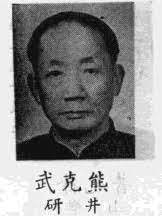Chang Tao-fan (1897-) held senior government and party posts at Nanking and Chungking and accompanied Chiang Kai-shek to India in 1942. In Taiwan, he was president of the Legislative Yuan from 1952 to 1959. A native of Panhsien, Kweichow, Chang Tao-fan came from a family which was noted in Kweichow for its scholarly tradition. It […]









